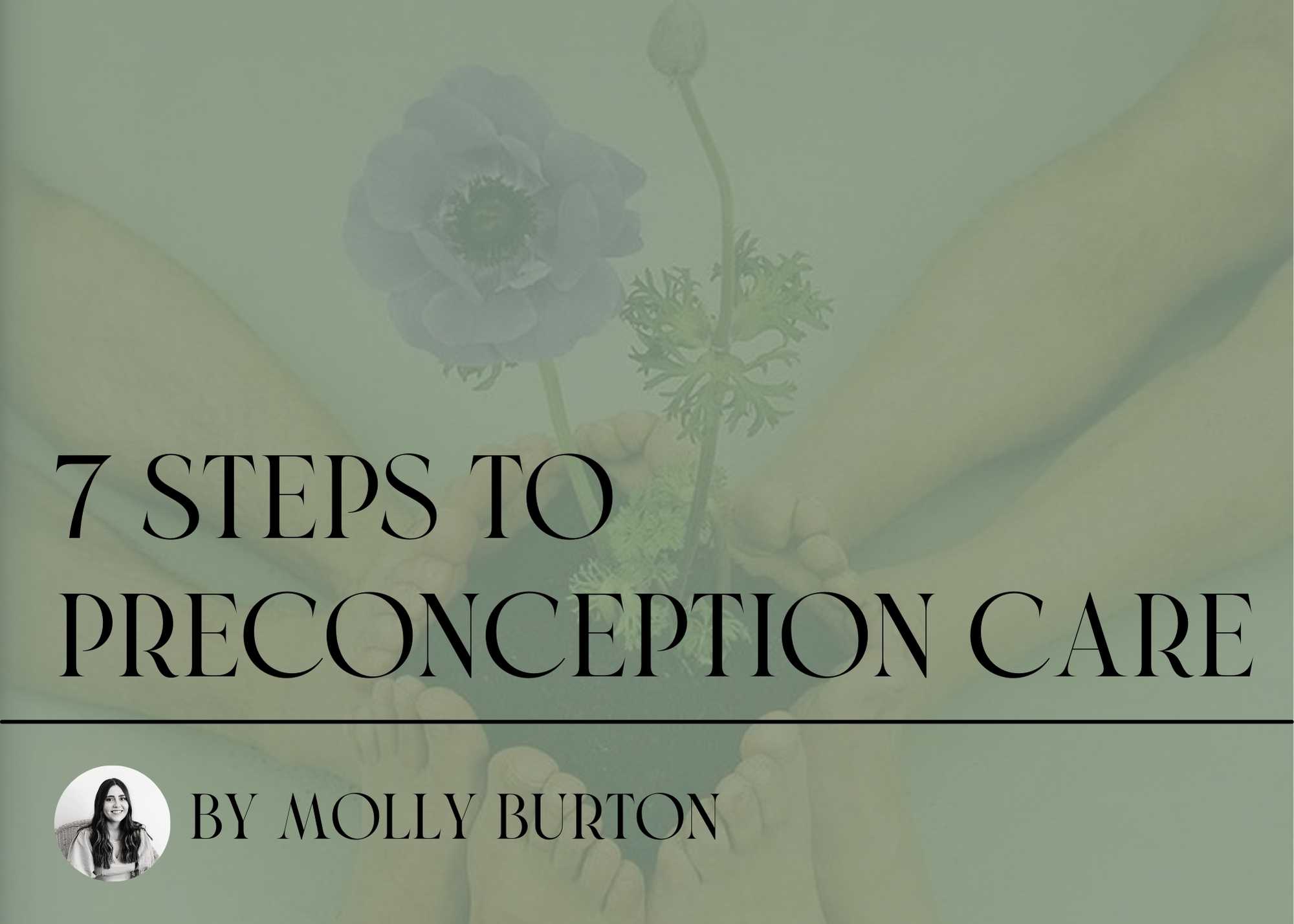“The desire to become a mother (and father)…can manifest in many ways. It might bubble up out of the blue and surprise you, or it might pulse enduringly, like an ache that is never not felt. Whatever form it takes, the moment you feel this call towards childbearing, a doorway opens, leading you to a path that will take you from one version of yourself to the next. It is a path of becoming.”
~ Heng Ou, Amely Greeven & Marisa Belger ‘Awakening Fertility’
If you are planning to start a family within the next year, it’s essential to consider preconception care for both you and your partner. The purpose of preconception care is to optimise the health of both parents before conception, which involves minimising lifestyle, behavioural, medical, and social risks. By taking care of your well-being leading up to pregnancy, you can enhance the mother’s health, increasing the chances of a full-term pregnancy and a healthy baby.
Preconception care plays a vital role in Egg Vitrification, as it aims to ensure the preservation of healthy and high-quality eggs. Similarly, individuals undergoing IVF and IUI cycles need to prioritise preconception care to enhance the quality of both eggs and sperm, thereby facilitating the development of robust and healthy embryos.
Ideally, it is recommended to engage in preconception care for at least three months to prepare both physically and mentally for conception and pregnancy. However, preconception care should ideally begin even before consciously deciding to start a family. This preparatory period should not feel overwhelming or require a complete overhaul of your lifestyle. Instead, it should involve a gradual shift towards a healthier way of living.
Using the analogy of “nourishing the soil before planting the seed,” preconception care aims to ensure that the egg, sperm, and uterine environment are healthy to promote a healthy pregnancy and baby.
Here are some important steps to consider during your preconception journey:
1. Schedule a Preconception Review with your general practitioner (GP).
Discuss medical history, assess any pre-existing conditions, vaccinations, ensure up-to-date cervical screening, and review any current medications for their safety during active attempts to conceive. It’s crucial to have a supportive GP who can guide you throughout the preconception and pregnancy phases, and work in an integrative model with other chosen health practitioners. Please also get a copy of your records, we are searching for optimal levels rather than just being within range.
2. Cease hormonal contraception if you have been using it.
Hormonal contraceptives such as the pill, the patch, injectables & IUDs have been revolutionary for women, however, it is important to allow the body time to regulate its natural hormones once again prior to trying to conceive. From a TCM perspective contraceptives tell the eggs to ‘go quiet’ to prevent conception, now we want to wake everything up to regulate the HPO axis once again. Most women regain hormonal balance three months after coming off the pill but other it can take a lot longer depending on your menstrual history prior to initiating, thus the more time you give the body, the better. Please consult your health practitioner or GP about your individual circumstances.
3. Encourage a regular menstrual cycle and familiarise yourself with signs of ovulation.
Each individual menstrual cycle is complex and different. Understanding your own cycle and when you ovulate is key to help optimise your chances of conception. Cervical mucus is a normal bodily fluid that works as a highway to guide the sperm to meet the egg – how amazing! It changes throughout the follicular phase through to the fertile window and once again into the luteal phase post ovulation. Observing the change, and understanding what fertile mucus looks like (clear, stretchy, egg-white consistency) will help you navigate your cycle. Head over to our recent post to read more about the seasons of the menstrual cycle.
4. Prioritize mental well-being and emotional support during this period. Reducing stress and nurturing a positive mindset can positively impact fertility.
Open conversations with your partner about making space for baby is important to ensure you are both on the same page and can support one and other through this journey. Stress is the biggest contributing factor to menstrual cycle disruptions and overall increased inflammation in the body. By supporting a heathy central nervous system your body & mind will be prepared for conception.
5. Establish a healthy exercise routine.
Regular physical activity is beneficial for overall health and fertility. It helps regulate blood sugar levels, maintain weight, reduce inflammation, and alleviate stress. If you already have a good routine, please review this to ensure you are working alongside your menstrual cycle and hormonal fluctuations. Too much exercise can have negative impacts, we like a nice balance between Yin & Yang dominant movement.
6. Nourish your body with a varied, wholesome diet. Quit smoking and limit alcohol consumption, as they can negatively affect fertility.
Awakening Fertility by Heng Ou is one of our favourite books with lots of preconception recipes to nourish your body & fertility. It’s not just about what we put in our bodies; it’s about creating a healthy relationship with food that works for you. Also, removing any detriments such as alcohol & cigarette use. You don’t need to overhaul your current eating habits, it just about making mindful choices to improve overall health.
7. Begin taking a high-quality prenatal multivitamin.
It’s crucial to start taking a prenatal supplement at least three months before actively planning to conceive. A good quality prenatal multivitamin contains essential nutrients, minerals, and vitamins necessary to support a healthy pregnancy. Keep in mind that ovarian eggs require approximately three months to mature, and sperm production in males takes around 74-120 days. How to know whether you are selecting the right one? Head over to Elizabeth’s journal entry – How to choose the right prenatal ~ Please discuss with your healthcare provider the recommended dose of follinic acid for your individual history.
Resources:
+ Awakening Fertility by Heng Ou
+ Integrating Chinese Medicine Podcast – Season 1, Episode 11 and 12 ‘So you are ready to have a baby, now what’ on Spotify
To discuss Preconception Care and Fertility further with our TCM Practitioners we welcome New Patients at both The Dao Health Burraneer and Paddington.
~
By Molly Burton
BHlthSc (TCM), MWomHMed (Current)

